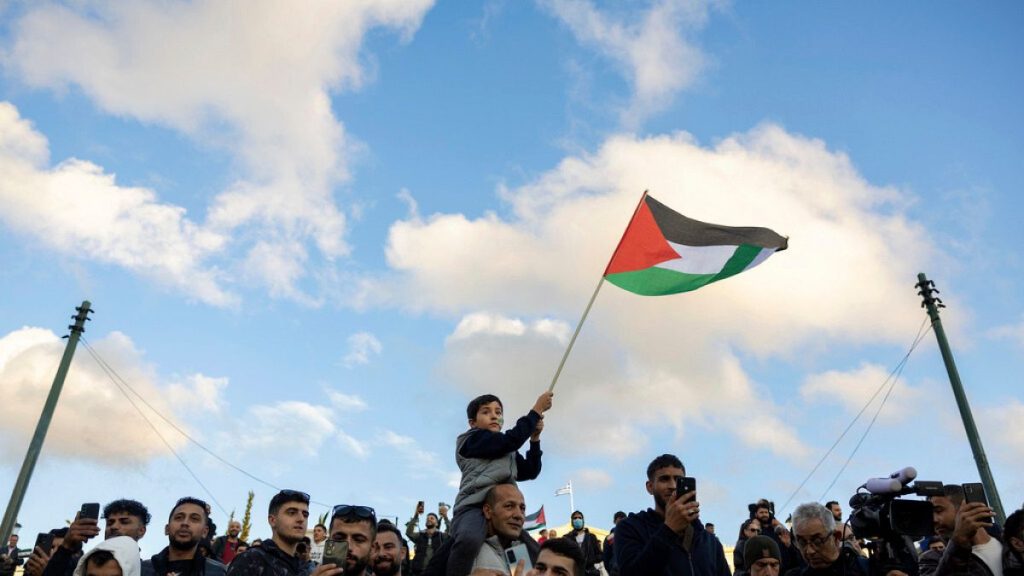The sudden collapse of Bashar al-Assad’s regime in Syria, culminating in his flight to Moscow, triggered a wave of complex emotions among Syrian refugees in Europe. Initial euphoria and disbelief quickly gave way to anxiety and uncertainty about the future, compounded by the rapid suspension of asylum applications in several European countries, including Germany, Sweden, and Greece. The swift change in the political landscape, with the Hayat Tahrir al-Sham (HTS) rebel group taking control of Damascus, left many refugees grappling with the implications for their potential return and the long-term stability of their homeland. The decades-long struggle against Assad’s oppressive rule had come to an abrupt end, but the path forward remained shrouded in ambiguity. While the fall of the regime represented a symbolic victory, the emergence of HTS, a group with ties to al-Qaeda, raised serious concerns about the nature of the new leadership and the possibility of a transition to a truly democratic Syria.
For Zahra Alhelamy, a 23-year-old Syrian refugee living in Germany, the news of Assad’s departure was met with tears of joy and disbelief. Having fled Syria at the age of 11, enduring a perilous journey through Turkey and Greece before finally settling in Germany, Alhelamy had long yearned for a free Syria. However, the rapid shift in power and the uncertainty surrounding the new leadership have left her apprehensive about returning. The suspension of asylum applications in Germany further solidified her sense of displacement, highlighting the precarious position of Syrian refugees in Europe. Despite facing discrimination as a Muslim woman in Germany, she considers it her second home, a place where she has built a life and established a sense of belonging. The prospect of returning to a still unstable Syria, without a clear political future, is daunting, leaving her with a sense of unease and a lack of viable options.
Bushra Alzoubi, another Syrian refugee residing in Paris, echoed Alhelamy’s concerns about the uncertain political landscape in Syria. Having experienced the arduous and often humiliating process of seeking asylum in France, she understands the precariousness of relying on the goodwill of European governments. The suspension of asylum claims serves as a stark reminder of the vulnerability of refugees and the ever-present possibility of being forced to return to a dangerous and unstable environment. Alzoubi’s experience with the French asylum system, where she felt her claims were met with skepticism and a lack of understanding of the Syrian crisis, further underscores the challenges faced by refugees seeking safety and stability in Europe. Her aspiration to return to a democratic Syria and contribute to its rebuilding is tempered by the current realities on the ground, leaving her with a sense of both hope and apprehension.
The ambiguity surrounding HTS’s intentions and the potential for a transition to a democratic government is a major source of anxiety for Syrian refugees. Mohamed Khedhr, a journalist and activist who fled Syria nine years ago due to threats against his life, expressed both elation at Assad’s fall and trepidation about the future. While the removal of Assad represented a significant milestone in the Syrian revolution, Khedhr’s hopes for a democratic and free Syria are overshadowed by the emergence of HTS and the potential for the country to descend into further chaos. The parallels with the situation in Afghanistan, where a rapid change in power led to instability and uncertainty, are particularly concerning. Khedhr’s desire to return and contribute to the rebuilding of his homeland is tempered by the fear of witnessing another descent into violence and oppression.
The experiences of Alhelamy, Alzoubi, and Khedhr highlight the complex and often contradictory emotions felt by Syrian refugees in Europe in the wake of Assad’s fall. The initial euphoria and sense of liberation have quickly given way to anxiety and uncertainty about the future. The suspension of asylum applications in several European countries further complicates the situation, leaving many refugees in limbo, unsure of their future prospects and unable to return to a still unstable homeland. The emergence of HTS as a dominant force raises serious questions about the trajectory of Syria’s political future and the potential for a transition to democracy. The hopes for a free and democratic Syria, once ignited by the revolution, are now tempered by the fear of further conflict and instability.
The shared experience of displacement, the arduous process of seeking asylum, and the ongoing uncertainty surrounding the future of Syria create a sense of shared vulnerability among Syrian refugees in Europe. The suspension of asylum applications further exacerbates this vulnerability, highlighting the precarious position of refugees and the dependence on the political will of host countries. The hopes for a return to a peaceful and democratic Syria are intertwined with the anxieties about the current political landscape and the potential for further conflict. The fall of Assad, while a significant milestone, has not brought about the desired resolution, leaving Syrian refugees grappling with complex emotions and an uncertain future. The need for a stable and democratic Syria is paramount, not only for the refugees longing to return but also for the long-term stability of the region.

